#the hand of orlac
Explore tagged Tumblr posts
Text
























in the silent era of horror, the word "horror" began to be used as a generic signation, and more often instead used was the words "weird" and "mythical and mysterious." this is a time when adaptions were so rapidly made like frankenstein and edgar allan poe's works dominated this era. horror as a genre wasn't specifically "created" or the word wasn't used until dracula in the 1930s.
#horror#horror movies#horroredit#the haunted castle#nosferatu#the cabinet of dr. caligari#the hunchback of notre dame#phantom of the opera#haxan#a page of madness#the unknown#faust#dr jekyll and mr hyde#cat and the canary#the hand of orlac#the fall of the houser of usher#the bells#dante's inferno#the queen of spades#the infernal cauldron#warning shadows#eerie tales#waxworks#destiny#the golem#the avenging conscience#after death#*mine*#horror cinema#cinema
3K notes
·
View notes
Text










Horror movies of the 1920s
#horror#horror movies#horror movie#movie#movies#gifs#gif#horror gif#horror gifs#my gif post#my gif#my gifs#horror edit#horroredit#20s horror#nosferatu#nosferatu 1922#the phantom of the opera#the hunchback of notre dame#the cabinet of dr. caligari#the hunchback of notre dame 1923#the hands of orlac#Faust#the unknown 1927#the man who laughs#Cagliostro#Faust 1928#the phantom of the opera 1925#lon chaney#lon Chaney sr
785 notes
·
View notes
Text

Orlacs Hande
524 notes
·
View notes
Text

Conrad Veidt in Orlacs Hände | 1924 | dir. Robert Wiene
#orlacs hände#the hands of orlac#the hands of orlac 1924#conrad veidt#1920s horror#1920s movies#1924#robert wiene#drama#thriller#classic horror#german expressionism#silent film#horrorgifs#gif#my gifs
210 notes
·
View notes
Text


Peter Lorre - Mad Love (1935)
#peter lorre#mad love#the hands of orlac#dr. gogol#karl freund#frances drake#30s horror#30s movies#1930s#1935
361 notes
·
View notes
Text
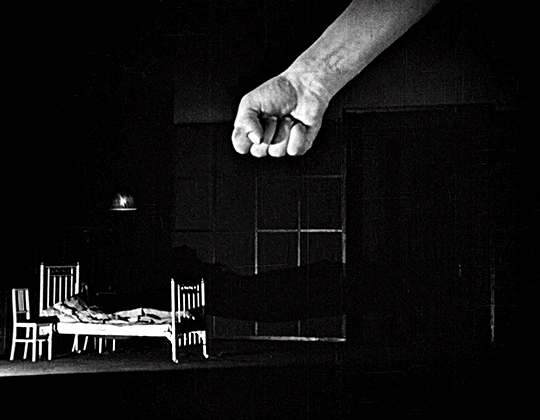
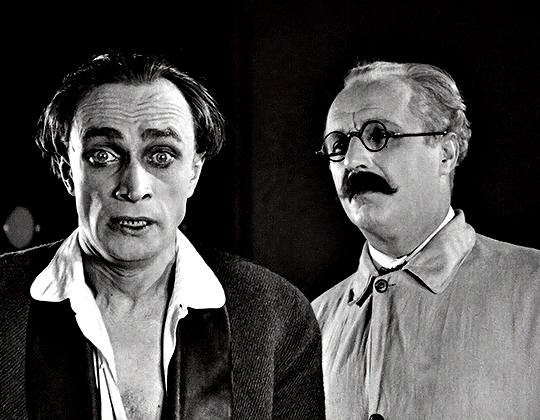
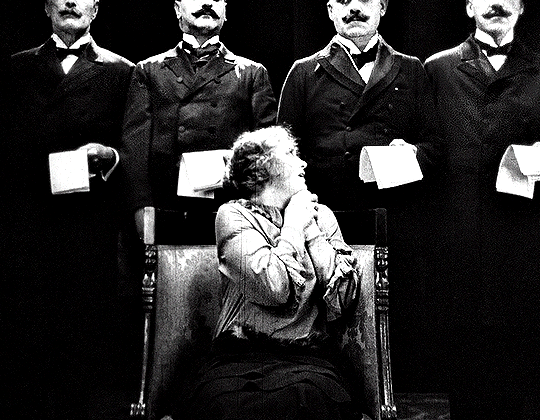
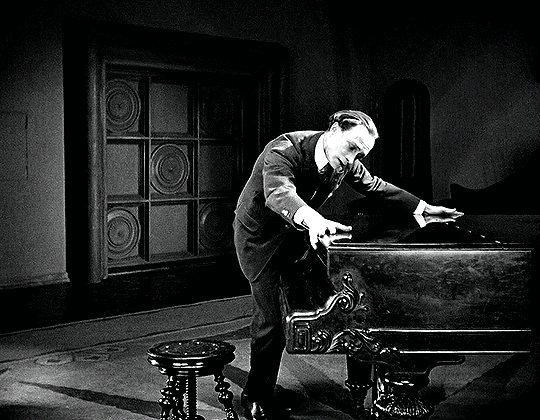
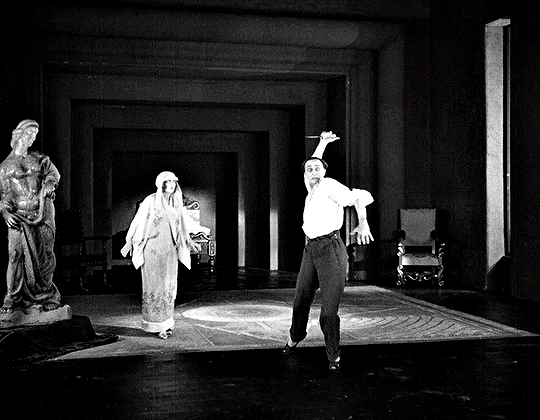

THE HANDS OF ORLAC | ORLACS HÄNDE (1924) dir. Robert Wiene
#the hands of orlac#robert wiene#silent film#conrad veidt#classicfilmedit#filmedit#classicfilmsource#classicfilmblr#classicfilmcentral#dailyworldcinema#cinematv#cinemaspast#uservintage#userstream#filmdaily#filmgifs#moviegifs#*mine#1920s#films#horror#y: 1924
874 notes
·
View notes
Note
Omg your style is perfect for Conrad Veidt art . Have you seen Hands of Orlac (1924)? If so you should . Draw him . Perhaps..

Thnak u so much !!! this honestly is so sweet I friggin love this dudes face and I’ve been meaning to draw him ever sense I watched cabinet of dr Calagari !!! If u or anybody else has character suggestions drop them in da question box MWAH !!!
#conrad veidt#Conrad veidt art#old horror movies#silent horror#hands of orlac#cabinet of dr calagari#old hollywood#art
84 notes
·
View notes
Text
82 notes
·
View notes
Text
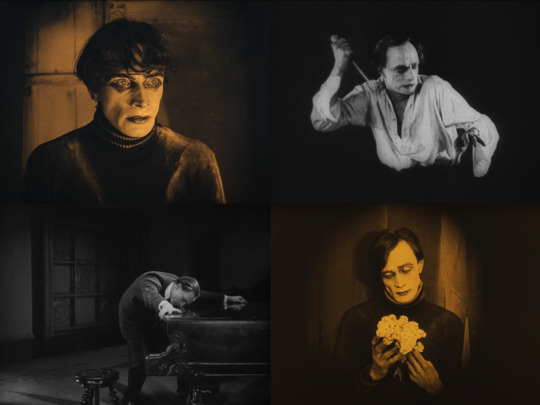
D O U B L E F E A T U R E !
The Cabinet of Dr. Caligari Dir. Robert Weine 1920 // Orlacs Hände (The Hands of Orlac) Dir. Robert Wiene 1924
I recently watched both, Caligari specifically because I was invited on a friend's podcast to talk about the film (I was totally normal about it and definitely didn't make color coded note cards about the making of the movie… I did, I did make color coded note cards). So I figured I would lump these two in one post to switch things up.
--- Even though we talked about the movie for an hour and change, the conversation we recorded for the pod easily could have gone longer. There's so much to unpack about The Cabinet of Dr. Caligari. Between its historical, cinematic, artistic, and cultural significance and legacy, but also the various players on and off camera, not to mention the film's genesis from concept to page to screen -- there's no shortage of rabbit holes to go down.
Something I wish I had brought up during the recording was the score: The score matters! These updated silent film scores really do affect the viewer experience, and they're so often hit or miss. Of course, the original score for Caligari has been lost to time, but I read that the premier of in New York had classical music (Prokofiev, Stravinsky, etc) played along to the screening; part of me thinks this would be fun to try to recreate. I have no memory of the music when I first saw the film in 2009, but when I rewatched Caligari about a year ago, early in my Conrad Veidt journey, I chose a version on Internet Archive (which is, as of late October, sadly still out of commission *cries in nerd*) and the updated score was almost entirely minimal strings, which created a suitably eerie effect. I couldn't find that exact version elsewhere, so I this time opted for the 2014 restoration that's on Kanopy. The 2014 score is… fine. It’s very busy, trying too hard to sound like a traditional movie soundtrack. There's another version with a really painfully bad guitar-heavy score that I couldn't sit through even 5 minutes of, and still another that's entirely synths. Apparently the new 4K UHD/Blu-Ray that was just released has two new options for the score -- hopefully at least one of them doesn't totally suck!
I noticed deep into my third time viewing the film that I hadn't reached for my phone once. These days, I'll occasionally pick it up and mindlessly scroll through social media while watching a movie. But I think Caligari and a few other silent films require closer attention since they're a purely visual medium. I found myself greedily devouring every frame of Caligari. No shot or scene feels wasted. Honestly, I feel like every movie should be 90 minutes long or less. Anything longer should be turned into a miniseries. But in all seriousness, Caligari is another film I want to physically walk into. It would be pretty easy to recreate these sets, life size in grayscale black and white. The more I think about this, the more I need it. So, so bad.
I also came away this time with a lot of questions, mostly about the main part of the narrative, the story Franzis is telling. But the framing device makes the questions pointless. If the main story is just Franzis's delusion, then the absurdity of the script is totally fine I guess? Except the script that Hans Janowitz and Carl Mayer wrote didn't have Franzis as a patient at the asylum, they hated the framing story twist that was forced on their movie, so all those weird parts of the script and character choices that I'm overthinking and reading too much into are rendered meaningless. It's all in Franzis's head! The story and the characters in it don't matter! Or else are just part of his subconscious! Face palm. Eye roll.
Does the movie even work without the framing device? It would be interesting to show an edited version of the movie without the first and last scenes to someone who's never seen it. And if the twist ending was supposed to dumb down the anti-authoritarian message of the script, I don't know that it's successful. In the end, I still have empathy for Franzis. And we still have an ambiguous ending: Caligari/The Asylum Director looks at Mad Franzis and says, "I know just how to cure him," and there's a creepy iris wipe in on Werner Krauss's face that maybe leads us to think Franzis isn't as delusional as we think he is. So like… even if the whole Dr. Caligari with his sleepy twink in a box story is fake, whatever is happening at the asylum is probably just as messed up if not worse.
Speaking of the twink in a box, I love that Conrad Veidt's German Expressionism is totally different from Werner Krauss's German Expressionism. They both trained and performed with Max Reinhardt, so their foundations as theater actors in the 1910s and 1920s were likely similar. But, regardless or in spite of that shared experience, they are diametrically different human beings and that comes across in their performances in this movie. These two actors are like the textbook definition of "showing" your art vs. "being" your art. Krauss as Caligari is like "ooOOOoo look how ooky spooky and evil I am!", whereas Connie's performance as Cesare, even though it's hyper-stylized, is infused with something deeper, something primal that feels believable in the context of the film.
If Cesare has been asleep his whole life, waking only to be fed Chunky Campbell's Soup and commit murder at Caligari's bidding, then no wonder he reacts the way he does when sleeping Jane finally brings him out of his trance. When she freaks out, he freaks out too because he's had no opportunity to learn how to behave like a human or how to filter his primal emotions in a socially acceptable way. He hasn't lived his life except to be a madman's puppet. He reacts to Jane's panic on instinct and impulse, his desire and fear feel feral, like he's more creature or an animal than a human man. He may not actually want to hurt Jane, but he reacts violently because fight or flight is a basic human stress response! He runs away and eventually collapses because his body can't handle the sudden onslaught of stress and emotion he's never before experienced! And this internal, instinctual tendency to violence is subtly alluded to in the final scene when Asylum Cesare both caresses and slowly picks apart the flowers he's holding. Ahhhhh, I have so many FEELINGS.
And that said… Connie's performance here is wild, but it's real in a way that Werner Krauss's work could never be because Connie was a spiritual humanist who cared deeply for others and Krauss was an anti-semitic piece of shit who therefore could NEVER dig deep enough into his soul or into the collective unconscious the way Connie did to breathe life into his characters. So everything Krauss is doing here and in The Student of Prague is all surface, it's "showing" the audience his training and his actor toolbox rather than bringing a level of honesty and in-the-moment groundedness to these roles.
This is not to say Connie's intense commitment to his work couldn't be, uh, excessive. I really hope Lil Dagover was being serious when she said he would lurk around the studio in character when off camera. Can you imagine? You go up to the craft services table for a snack. Suddenly you feel like you're being watched. You look up and he's looming over you in the shadows, his unblinking glazed eyes boring into your soul. God, I hope this happened and I hope whoever it happened to peed themselves a little.
I also wish we had a behind the scenes photo of Connie in costume with the Cesare dummy. I can't believe someone actually had to make that prop. It'll haunt me forever. (The 1920 Cesare Dummy isn't real, the 1920 Cesare Dummy can't hurt me.)
Bottom line: It's an important film, I appreciate it for both its timelessness and timefullness. But it's not a movie I need to revisit often, regardless of how enchanting Connie's nostril acting may be.
---
The first time I watched The Hands of Orlac, I was floored by the visuals, the staging, and the heavy eroticism. Up until that point, I hadn't seen very many silent films, certainly few as visually striking. I think my initial impressions of this film were somewhat muted on a second watch, but that may just because I knew what to expect.
This time, I wasn't as swept up in the magic of silent era German Expressionist cinema, although stylistically I'm still absolutely 100% obsessed. Art direction wise, this is my favorite between the surviving Wiene-Veidt films (I haven't seen Furcht and I don’t plan to). Orlac is like the darker, sexier, more grown up sister to Caligari's mall goth teen. It's Vampira vs Lydia Deetz.
Orlac is just as much if not more of a cinematic feat than Caligari. The production design and art direction alone feels more mature and in itself tells more of a story.
Very early in the film, we're thrown into a very impressive, very realistic train crash. Opening the movie this way was a really interesting choice -- we don't get to meet the characters before the accident that starts Paul and Yvonne Orlac on their doomed and bizarre trajectory. There is a brief establishing scene of Yvonne reading a really horny letter from her husband, and one of pianist Paul at his final concert before returning home. Then there's a very long sequence of the aftermath of the train crash that almost kills Paul, and this scene brings a level of realism you don't really get in other films of this genre/done in this style. The set construction looks expensive; the mangled train cars piled up in heaps may have been fabricated in the studio, but because of the lighting in the night scene, the billowing smoke from passing locomotives and fires from the crash, it looks pretty damn real for 1924. It's extremely effective and harrowing, especially as Yvonne races to the site of the crash and climbs through the wreckage to try to find her husband. The chaos of the scene, made all the more disorienting by the movement of search lights and the haze of smoke and steam, feels true to life. People are running around, pulling bodies from the ruined train cars, carrying them away on stretchers. Survivors look around dazed, clutching their belongings in shock. It's such a well directed moment in the film, but maybe not the first thing people remember about it. And I think it's inclusion is important because it offsets how weird the movie's about to get.
And boy, does it get weird. However, the doctor does say Paul suffered a skull fracture, so it's not a huge stretch to think he also has some kind of brain injury. So I wonder if that has something to do with how the filmmakers chose to show Paul's intense fear and paranoia, as well as the movie's shift in tone and style after his accident. The nightmarishness of the film, from the exaggerated performances to the set design, feels like an extension of whatever might be going on in Paul's head as a result of his injury.
Regardless, I love the choices the art director made. The set, especially the Art Deco mausoleum the Orlacs have for a home, is so perfect. The huge, cavernous rooms are completely unnecessary, but they make the characters look and feel so helpless, like dolls in a doll house. The lines of the walls and the furnishings draw the eye through the frame with just as much intention as the painted sets of Caligari. Even places outside their house become symbolic and iconographic. The news stand is just a window cut out of a massive wall of loose sheets of newspaper that takes up the entire frame. The interior of Orlac Sr.'s house is like a old, drafty castle, looking more like the home of an evil, miserly king. The tavern where Paul is confronted by Nera feels dank and subterranean, just a lamp or two removed from literal catacombs. The outer world is fully a reflection of poor Paul Orlac's inner torment and despair and I AM LOVING EVERY MINUTE OF IT.
The new music composed by Paul Mercer is perfect, too. It's all skronky violins and cellos, ominous percussion and piano. It's just atmospheric enough, creating moments of soundscapes, echoing footsteps, aural suggestions of the oppressive cave-like rooms where the story unfolds. There aren't really any memorable themes like in the updated score for The Student of Prague, but that works for this movie. I would buy this soundtrack and actually listen to it on its own, it's that good.
Everyone in the ensemble is basically on the same page in terms of acting style, no one feels out of place or miscast. Connie of course steals the show, but Alexandra Sorina as Yvonne gives him a run for his money. She's a good match for him, delivering an appropriately desperate and hysterical (and deeply, deeply horny) performance as the touch-starved wife. Their scenes together are maybe some of the best on screen romantic moments of Connie's silent film work because these two are wildly hungry for each other. This movie is so funny, it tells you immediately how horny it is; in the first 30 seconds of the movie, Yvonne gets a letter from Paul that says, "I will feel your body beneath my hands," like they're telling you straight up this is going to Horn Town. And the way she grabs at him, presses her open mouth to him, hovers over him in his hospital bed, she is DTF anywhere any time. And no shame, no shade, good for her. This is a sex positive film, and we love to see it. But she's not just the sexy wife, she's also totally ride or die for Paul. She truly trusts him and believes his absolutely buck wild story about being blackmailed by a dead psycho killer. What a gal.
Then there's Paul, aka Eraserhead Baby… because when he wakes up from surgery covered in bandages, he looks like the Eraserhead Baby. Connie is doing some of his finest nostril acting in this role, I have to say. As always, I am fascinated by his physicality and the choices he's making with movement and gesture. When his bandages are finally removed, he reacts as though drugged, his movements slow as though underwater or in a dream. And when he confronts his surgeon after discovering the original owner of his newly transplanted hands, he holds them out and away from his body as if they were coated in something dirty or disgusting. As Paul's life and sanity unravel, his hands and fingers are in almost constant motion, curling, twitching, clutching; his body language becomes more creature-like, moving in a way that calls up Cesare the sleepwalker -- interestingly, the two characters both seemingly at the mercy of forces outside their control.
We don’t get to know what Paul was like before the accident, how much this traumatic event changed him. There's something this movie is trying to say about trauma and how it affects people. The doctor tells Paul, "Nature and a strong will can overcome anything." But if Paul sustained any kind of serious brain damage, who’s to say his personality wasn't affected, or that he wasn't fragile and suggestible to begin with? Either way, in the wake of the accident, Paul's vulnerability and circumstance makes him a perfect target for Nera's grift.
Even without being targeted by a sick weirdo con artist, it's no wonder Paul's really going through it. He tortures and punishes himself relentlessly for something that wasn't his fault! (Been there.) He puts on a recording of one of his old concerts and crumples in grief for having lost not only his livelihood but also his outlet for creative expression -- not being able to do what you used to creatively because of trauma is REAL. He's trapped in his misery. Even his handwriting is different, now a violent scrawl he imagines is due to the murderous acts his hands supposedly committed. He secretly retrieves the planted murder weapon in order to further convince himself he's somehow become evil, wielding it as through he committed the crimes of the dead man whose hands now belong to him. And the scenes where Yvonne comes to him, wanting to both devour and comfort him, he cannot bring himself to touch her. Clearly they love each other very much and their relationship was very physical, so the agony and yearning in his face when she embraces him is UGH IT'S SO GOOD. It's heartbreaking. There's a lot to unravel here about trauma, body dysmorphia, and intimacy that I'm interested to dig into during subsequent viewings.
Final thoughts: There's an annoying part of my brain that wants the movie to make sense, for the timeline to be clearer, for loose ends to be tied up. But I know that none of that really matters because this movie is better received as a dream or a nightmare. And by that logic, it doesn't have to make sense. The Expressionist beats are being hit particularly hard, but the surreal quality allows the filmmakers and cast to get away with it. For fans of Conrad Veidt, this is a must-watch, even before Caligari -- he gets more screen time in this film, gets to play with his silent film artist's palette, and gets to do pathos like he's the king of tragic, pathetic characters. He's gangly, glassy-eyed, and trembling like a small wet dog the whole time and it's superb. Despite not really getting a chance to know the Orlacs before they're thrown into their own personal hell of body horror and credit debt, they're both pretty sympathetic. From psychological commentary to the erotic visuals and tension, it's all very ahead of its time.
29 notes
·
View notes
Text
















The Hands of Orlac (1924)
23 notes
·
View notes
Text





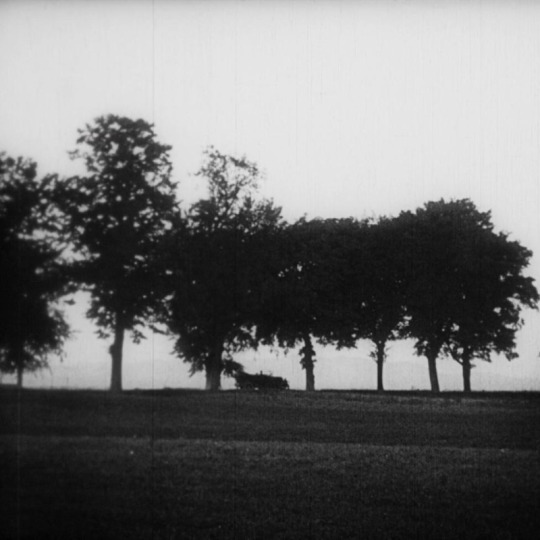

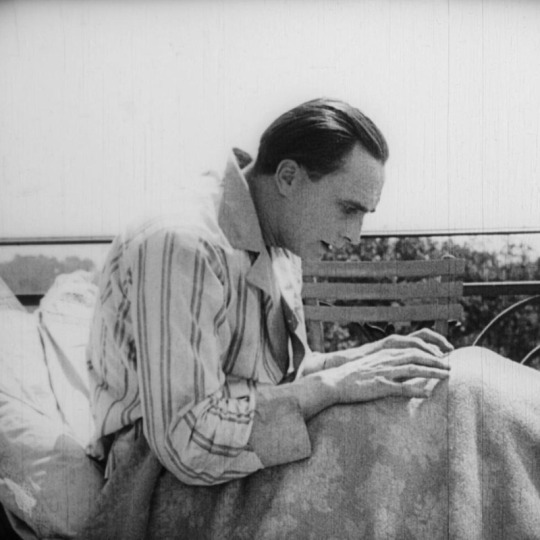


horror around the world: germany (3/10)
the hands of orlac (1924) directed by robert weine
#the hand of orlac#robert wiene#horror#horror movies#20s horror#moviesedit#filmedit#cinema#horror cinema#horror screencaps#screencaps#movie screencaps
51 notes
·
View notes
Text










Scream King - Donald Pleasence
Requested by Anonymous
#horror#horror movies#horror movie#movie#movies#gifs#gif#horror gifs#horror gif#my gif post#my gif#my gifs#horror edit#horroredit#screamking#scream king#Donald Pleasence#halloween 1978#the twilight zone#the outer limits#the hands of orlac 1960#the hands of orlac#circus of horrors#phenomena 1985#buried alive 1989#prince of darkness#vampire in Venice#from beyond the grave#John Carpenter’s Prince of darkness#gifset
250 notes
·
View notes
Text









'The Hands of Orlac' 1924. Screenshots.
25 notes
·
View notes
Text



Orlacs Hände | 1924 | dir. Robert Wiene
Conrad Veidt as Paul Orlac
#orlacs hände#the hands of orlac#the hands of orlac 1924#conrad veidt#1920s horror#1920s movies#1924#robert wiene#drama#mystery#classic horror#german expressionism#silent film#horrorgifs#gif#gifs#my gifs
164 notes
·
View notes
Text

『The Hands of Orlac』 (1924)
456 notes
·
View notes
Text

20 notes
·
View notes